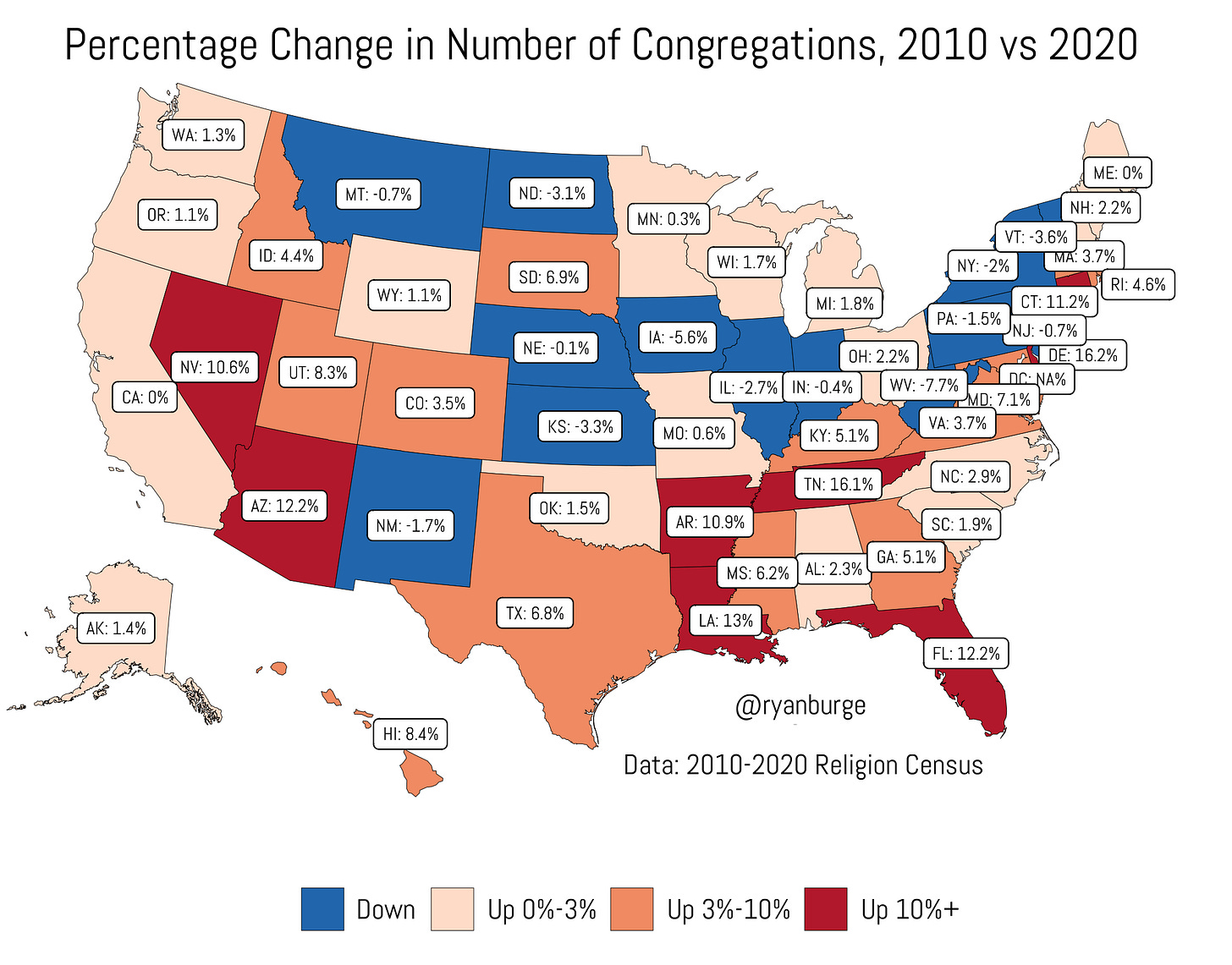Where Have Churches Disappeared?
As you may have heard, my church closed in July. Beyond the AP story that Peter Smith put together, Bob Smietana also covered it for Religion News Service, and I wrote a long essay that the Deseret was kind enough to run with only some light editing. I got so many emails, DMs, and messages on every social media platform known to man. The phone number at the church got a dozen voice mails from people all over the country. I got a call on my personal cell phone number at 7:15am from an older gentleman who wanted to offer me a job as an associate pastor at his church. I politely (and groggily) declined.
To be honest, it was overwhelming—and not always in a good way. I went through a pretty rough period in the immediate aftermath. A lot of it was self-inflicted. I wanted the average person to understand church closure in a real way. Trying to be so public about something so personal has a very real downside.
There were several messages like that - “I’m not particularly religious, but I was very sad to hear about your church closure.” There were others that were pretty simple, “I am praying for you and your congregation.” I appreciated those messages; they were a balm to my weary soul.
Other messages weren’t so positive. People wanted to help me understand why my church closed. My church was too liberal. I was only part-time, I should have been full-time. I wasn’t supposed to be a pastor (I made mention in the Deseret piece, that I never truly felt called to be a pastor.) Those honestly sucked, and they made me feel even worse.
Then there was another type of message that made me like Christians just a little bit less.
“Can I help you replant the church?” was the subject of about a dozen of them.
You know what it felt like? My spouse had been battling terminal cancer for a decade, she finally passes away, and someone walks up to me at the funeral and says, “I have this girl for you, she’s great.”
Give people space to grieve, please. Not everything can be fixed. Not everything is a chance to plant a church. Sometimes, things just are.
But there was one set of messages that I will never, ever forget. A handful of people wrote to tell me that they, too, had closed a church. And they were with me. They knew what I was feeling and thinking and believing.
I had unwillingly and unknowingly joined a fraternity of pastors who had closed churches.
How often does that happen? Are there areas of the country where there are fewer churches today than there were a decade ago? You know I can answer those type of questions! The Religion Census happens every decade, so let’s compare the number of congregations in 2010 versus 2020.
Let me start by showing this at the state level, then I will drill down to a county level analysis in just a minute.



